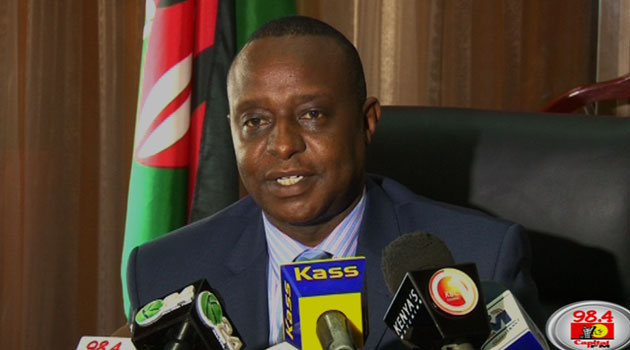
otich told the Committee on Administration and National Security on Tuesday that the money will be paid over a span of five years at a cost of Sh3 billion per year but said it could be extended to 7 years/FILE
The communication, command and control system will be rolled out by December if approved.
Rotich told the Committee on Administration and National Security on Tuesday that the money will be paid over a span of five years at a cost of Sh3 billion per year but said it could be extended to 7 years.
This way, he explained, the amount per year could be reduced further to lessen the burden for tax payers.
He said the security contract is part of a five-year modernisation plan for the National Police Service noting that the due process of the law was followed.
“We have no reason why the project should not take off, if there is the funding and the provider,” he said.
He pointed out that single sourcing of the Safaricom could save the country a lot of time and ensure value for tax payers’ money giving example of the Anglo Leasing scandal where competitive tendering process was allegedly carried out, but followed by a mega scandal.
He said the project was crucial in the modernisation of the police in a bid to deal with the current security challenges.
“This five years or so modernisation programme…one of the emphases is to really get value for money for all the procurements that are required,” he affirmed.
“We even took it ourselves as treasury to start leasing of vehicles because we were not sure that this can be done properly in other ministries.”
Other than the 1,200 police vehicles being leased this year, he said the Government will lease another set of 2,000 police vehicles in the next financial year.
The committee members insisted to know whether the legal process was followed but Rotich said, “We have justified the need for single sourcing. It is in the law…the problem is that people think when single sourcing is done there is something wrong.”
“What urgency was there, we had security challenges for a long time…is it an emergency, why the rush?” a member of the committee posed.
He said the Communications Authority of Kenya had explained on the spectrum which was to be used in developing the police communication system.
Communications Authority of Kenya Director General Francis Wangusi has since expressed optimism on the capacity of Safaricom to establish the security surveillance system for the country.
Appearing before the committee, Wangusi had said although the authority was not involved in the tendering process, the company was well equipped to perform the task.
He allayed fears that there will be interference of the network, saying it will be fully under the National Police Service once established.
“The active infrastructure will be the only one through which one can interfere with the activity and contents of the security network of police,” he said.
“We already advised that the active infrastructure should be exclusive to the police.”
Wangusi pointed out that Safaricom will only develop the current police network through Long Term Evolution technology.
“On the international best practices, we have followed them and we want to ensure the entire process is followed to the best interest of Kenyans,” he said.


































